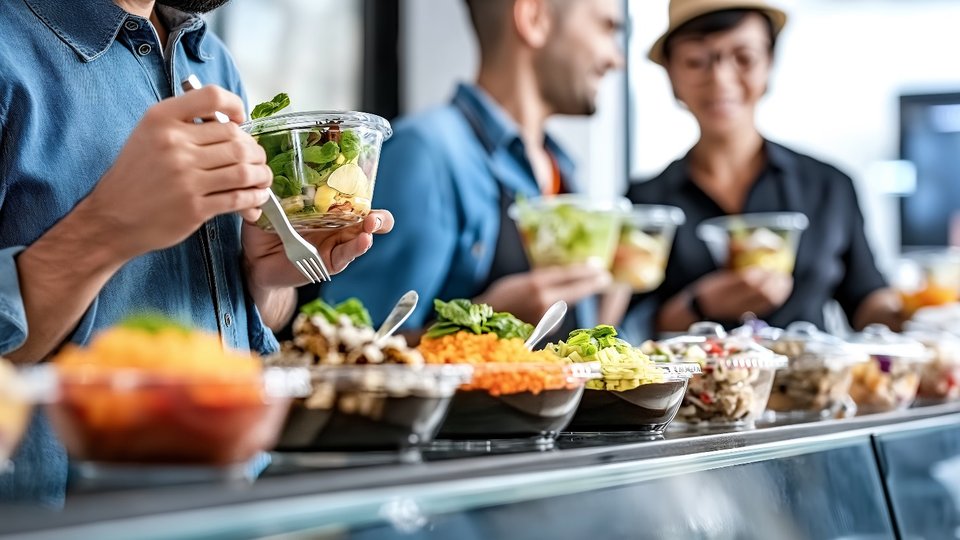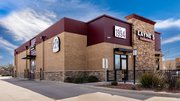Fast Casual Executive Summit
How old-school relationship building fuels catering sales
Until the AI overlords take over, our economy is still driven by human people making human decisions. The catering opportunity not only wants but relies on a solid foundation of relationships to endure.

September 4, 2024 by Terry Matthews — Managing Partner, Off Premises Growth Academy
Everybody knows the world of technology is advancing incredibly quickly. When you look around, you can easily see advancements in everything from the gum you chew to the car you drive to the AI powering your phone. Catering as an industry is far from immune to these kinds of changes. I want to point out here that in the ever-shifting tides of POS systems, online ordering solutions, heck even drone delivery programs, it's important to hold the right framing of technical utility. Why is your customer data so important? What makes the systems you have in place better or worse? The truth is, all that fancy software exists to do one thing; build profitable relationships.
Until the AI overlords take over, our economy is still driven by human people making human decisions. The catering opportunity not only wants but relies on a solid foundation of relationships to endure. In a world where capturing and holding the attention of customers is growing increasingly difficult, that sense of human connection is what keeps people coming back to spend money with you. This needs to be the key driver of your catering strategy.
Broadly speaking there are three kinds of relationships that all businesses utilize:
- Customer relationships — fairly self-explanatory but essential to break down since they are ultimately what make you money.
- Back-end relationships — supply chains and business partners that allow you to operate as effectively as possible
- Internal relationships — interactions inside and across your programs, colloquially this is a company's culture. Back-end relationships.
While all three of these can be further differentiated to most effectively manage the particulars, I want to take this time to focus on the management and segmentation of customer relationships in the catering space.
Imagine with me for a second a local doughnut shop. Let's give it a name. How about Darcy's Donuts? Okay, so at Darcy's Doughnuts, Darcy herself, is behind the counter. Every morning she chats with the regulars as they come by to get a doughnut and a coffee on the way to work. It's going great, but she's a bit technophobic and has used the same POS system since she opened. One day, Darcy takes a look at her operation and realizes that she isn't taking advantage of the opportunity here. She can make more doughnuts than she can sell at the storefront. She decides to sign up for Doordash. Sure, the margins shrink a bit but surely with online sales there will be enough volume to increase doughnut sales, right? Let's ignore the issues Darcy starts to run into in terms of operations and examine her sales over the next few months. Some orders are going out the door, but sales quickly stop accelerating. Darcy really isn't seeing the growth she wanted.
Okay, so what's happening? Her product is now available online. People have easy and convenient access to her store. Isn't this supposed to be the massive bump of modern technology? The truth is Darcy's doughnut isn't online, just a ghostly facsimile. The doughnuts might be good, but there are other good donuts. In fact, right beside the button for a doughnut is a button for cake. Or muffins. Or a burrito. All of it isolated, all of it impersonal.
If Darcy wanted to grow her business she needed to utilize the available technologies to remain fully engaged in the customer experience, like a custom website that sends a personalized note when an order is placed. She needs follow-through and outreach. Better yet, she should reach out to nearby businesses to see if they want to order doughnuts for the office. She's talking to her regulars anyway, so why not gauge interest in weekly doughnut deliveries to their offices?
Outreach is not optional
This is a super isolated case examining just one of the channels required by modern foodservice businesses. Here's the point, a sale is not an isolated event. Outreach is not optional. There is a reason old-school selling techniques work. People like people.
I'm not trying to push away from catering technology, far from it. What I want is for people to learn how to use said technology to drive value in their business. Don't use automation as an excuse to avoid human contact, use it as a tool to better facilitate the kinds of business relationships that will drive your growth.
So call some people. Knock on some doors. A simple "Hey how's it going? Congrats on your 10-year anniversary coming up! Were you looking to get that catered?" goes a long way. You need to design your catering program around human relationships despite the increasing ease of doing exactly the opposite. It's time to make friends and grow sales.
Thanks for tuning in. Let's talk catering.
Wanna hear more catering advice?
Restaurant operators may register here to attend The Restaurant Catering Workshop, Oct. 15-16 in Denver, or here to attend both the workshop and the Fast Casual Executive Summit, Oct. 13-15. Operators will receive a discount for attending both events.
The event is for restaurant and foodservice operators only as well as a few vendors interested in sponsorship opportunities. Request sponsorship info here.

About Terry Matthews
Erle Dardick is an entrepreneur, author, and off-premises thought leader in the global foodservice industry. His mission is to help operators create successful off-premises revenue channels. He turned a small Vancouver deli into a flourishing operation and developed MONKEY, the leading cloud platform for takeout, delivery, and catering. He founded The Catering Institute, MonkeyMedia Software, and Off Premises Insights. Now, he leads The Off Premises Growth Academy, advocating for the industry and providing training. Erle holds an MBA from Simon Fraser University and lives in Vancouver, BC.









